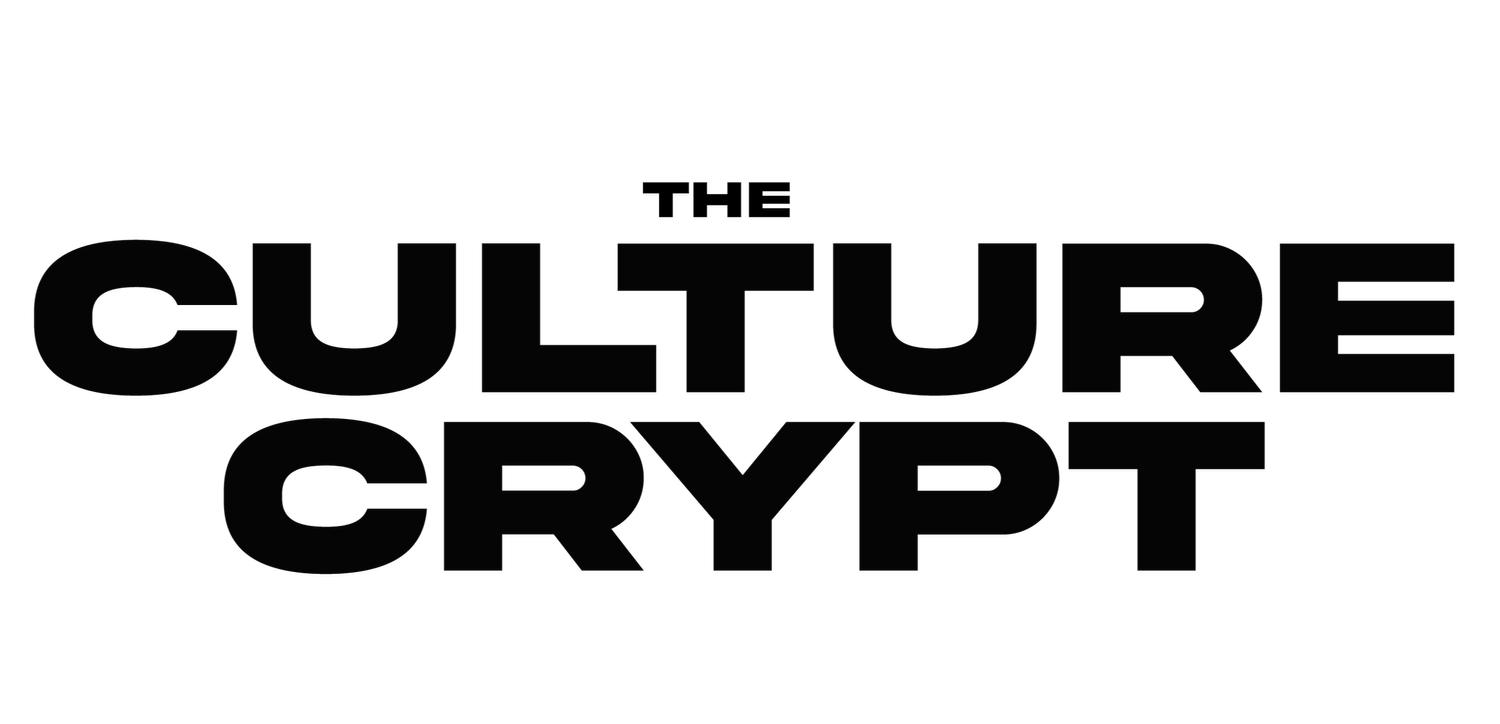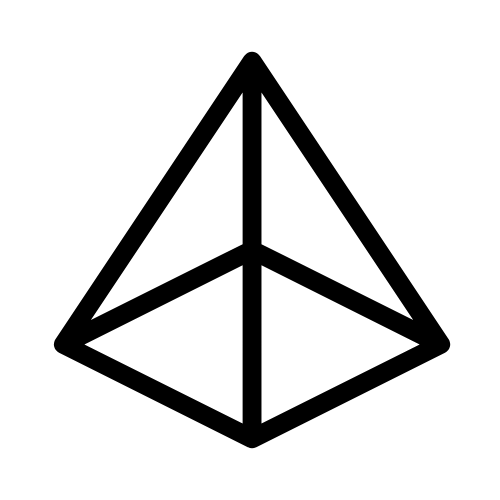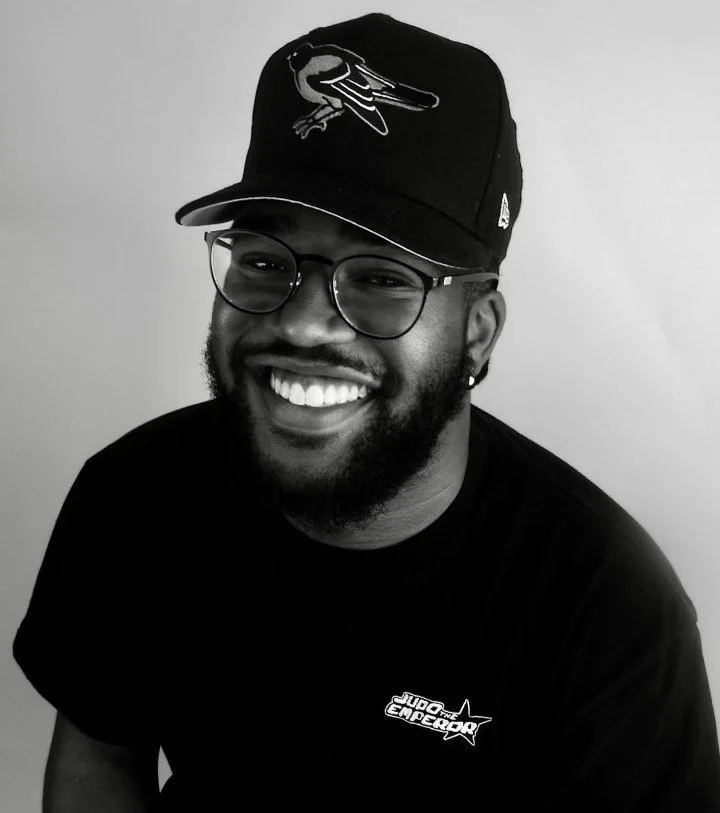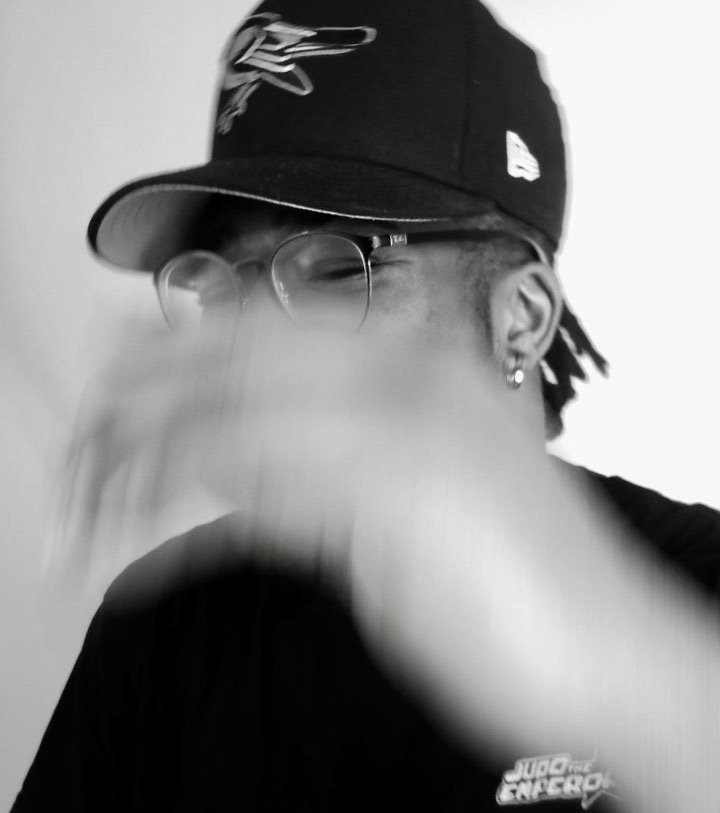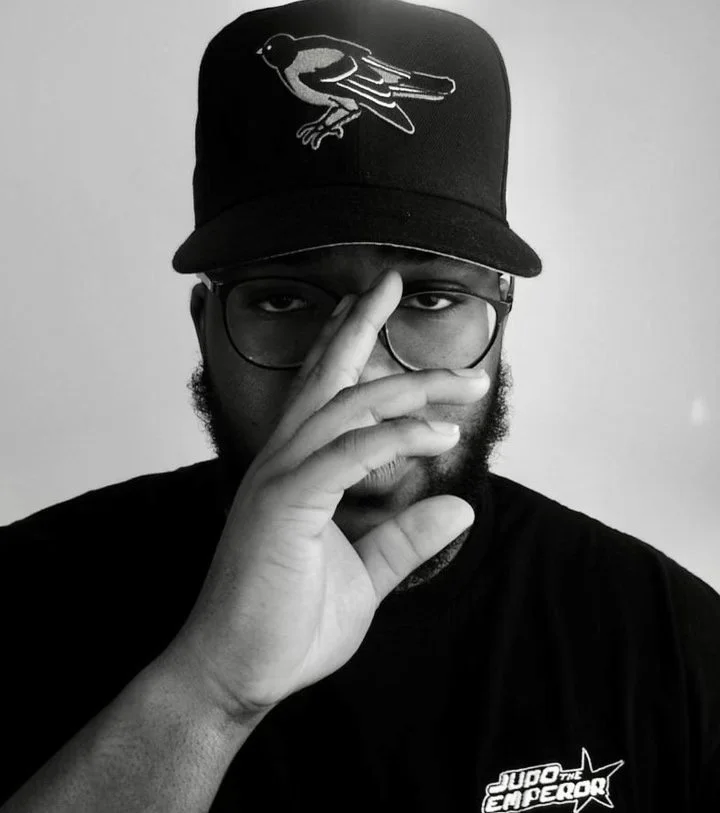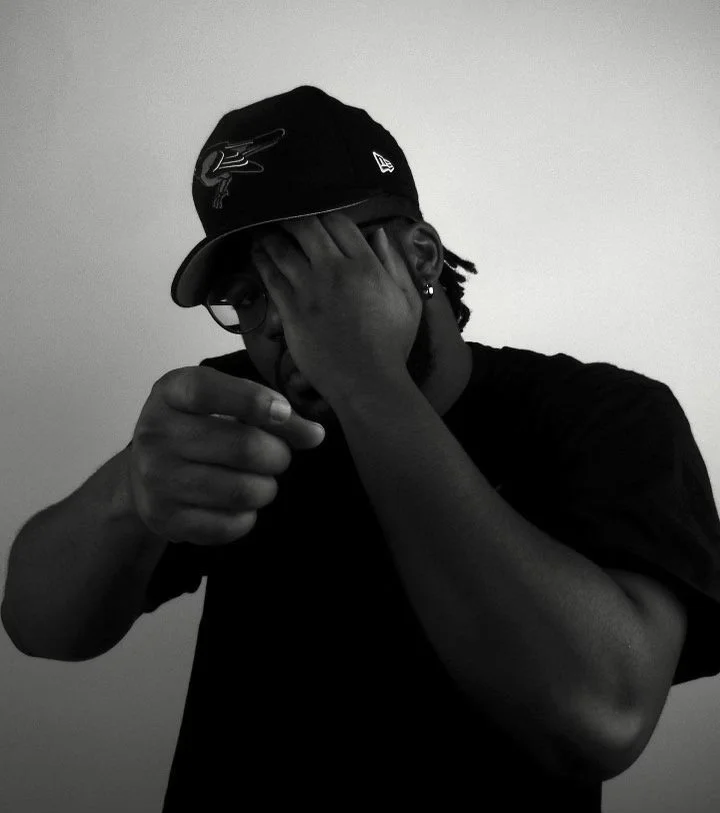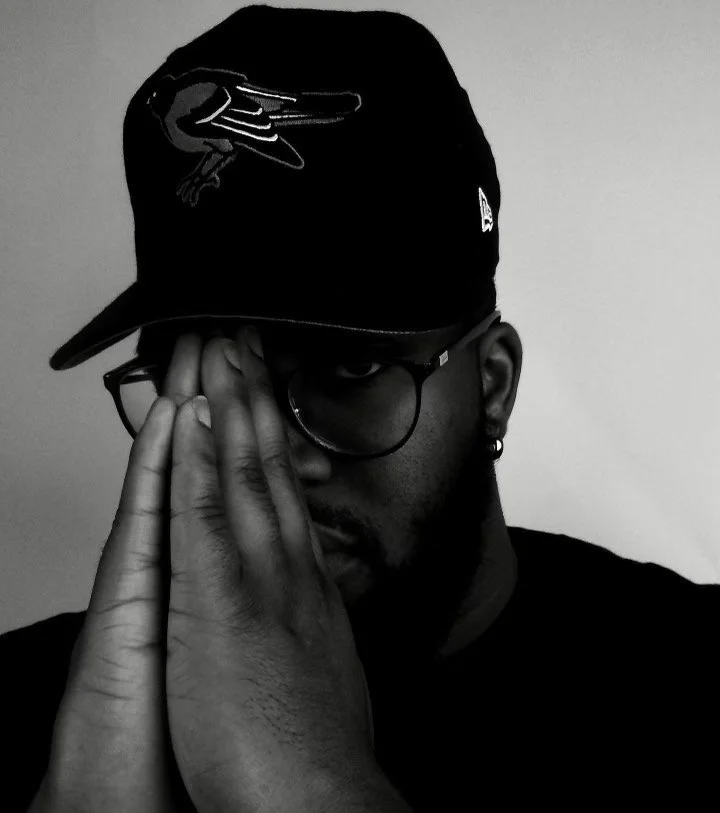It's JUDO's World… We're Just Living In It
Maryland rapper JUDO THE EMPEROR discusses his beatmaking tenure, creative process and ardent MF DOOM fandom.
If you’re an emcee from Maryland, you’ve got some stiff competition. From IDK to Rico Nasty and Wale: the state is home to some of the most boundary-pushing artists the hip hop landscape has to offer.
Rising 22-year-old wordsmith JUDO THE EMPEROR is no exception to Maryland’s rapping arsenal. Since his 2019 debut, October, JUDO has developed his own flavour of mellow, lo-fi-tinged instrumental backdrops. From releasing well over a dozen—well-received—underground projects on his Bandcamp to dropping one of this year’s sharpest rap-led offerings, there’s no stopping JUDO’s rule.
I’ll always remember one of the first conversations I had with THE EMPEROR. It was my second or third time at Friday night “Rotations,” a local beat showcase that ran out of Joe’s Record Paradise in Downtown Silver Spring, MD. Joe’s was one of the first spots I started frequenting once outside opened back up, and JUDO quickly stood out as one of the best artists there.
So we’re in Joe’s one night chatting about a shared appreciation for MF DOOM, and I’m on my soapbox ranting about how DOOM has so many sons, how Black alternative artists from Earl Sweatshirt to KeiyaA and more owe so much to the Villain. And JUDO turns to me and gets all solemn and serious for a moment and says something like “and the craziest part is, he has so many more who you don’t even know about.”
JUDO THE EMPEROR is definitely one of them. With that inspiration, the SP beat machine he got in high school, and countless hours of tinkering in Ableton, the EMPEROR worked tirelessly to sharpen his skillset, culminating in his most recent album, MESSAGE TO A PAST SELF. As confident as he’s ever been, JUDO is steadily making his own way through the underground rap ecosystem.
Here’s what he had to say.
The Culture Crypt: What first got you interested in music?
JUDO: ”My first introduction to music was playing instruments. My parents had me play the violin, viola and the drums growing up. I played in my school’s concert band. I wanted to play jazz, but I wasn't good enough. And I didn't practice enough because I really hated practicing. So I stopped playing instruments around like ninth grade, and then I was just on some teenager shit, you know? Just poking around online with friends and shit. That was around the time where I discovered SoundCloud and my own taste in music, I was finding things that were like ‘oh, this is pretty cool.’”
What were some of those things?
"It was mainly DOOM man, DOOM and random SoundCloud cuts that you would only find on SoundCloud.”
How'd you get into MF DOOM?
“...there's this album that he has called ‘The Mouse and the Mask’.”
Yeah, the one with Danger Mouse, right?
“Yeah, it was DOOM and then Adult Swim. I was always into Adult Swim because of my older brother.. I just checked [the album] out on some YouTube algorithm shit and it was fire. And I was like, Yo, what?! He blew my mind… just the way he comes in on it? It feels like I'm listening to Adult Swim. I'm boutta play the first...one of the first DOOM songs that I was like, ‘yo, this is crazy.’”
So is DOOM your favourite—oh shit is this “El Chupa Libre”? This joint is nuts.
“Is DOOM my favourite rapper...that's an interesting question. I would say yes, and no...because there are so many rappers. And there are so many styles, especially now? Those that know that there's like a renaissance going on in hip hop right now. You know, the whole alternative hip hop, whatever you wanna call it? I call it spliff rap—”
Ok, hold on. Because a lot of niggas want to call it a lot of shit. I don't know if you're tapped into TikTok or RapTok but like white niggas on there be like, "it's avant garde." I'm like…..ok?
“Yeah, that shit is stupid bro.”
Did you say spliff rap tho? I mess with that!
“I coined that term.”
Is your music spliff rap?
“Yeah...spliff rap is a broader term because it covers that kind of vibe of like..."nah, man, we don't have to do all that. Let's just roll a spliff.
But yeah, I was just listening to that. I started writing over DOOM beats while I was going to school, rapping to my mom in the grocery store and just having fun with it cuz I thought it was cool. I was learning myself through it. And I think that's why I stuck with it. I'm going to continue to grow and learn as a person.”
When I first met you, you told me you make beats and rap sometimes. Now you're a full-fledged rapper: when did that change and how did that change?
“I know exactly what you're talking about because that's what it was at the time. I wasn't as confident in my abilities, and in my voice. The producer is in the back on stage, DJ'ing the set, just nodding to the beats. And that's me, I do that all the time. But I've always wanted to rap and take the spotlight and say some shit that I wanted to say, instead of looking at whoever is saying whatever they wanna say.”
That transition happened when people started referring to me as a producer. I was like, "whaaat??! Niggas don't know that I rap? Like, I'm getting kinda nice at the raps, niggas need to know. And I had friends like, Will Kobus Troy IV, and Young, Smoove, just encouraged me...the friends around me were just like, "You're nice!" So I used those words of encouragement to get past the self-doubt that was holding me back from really just going forward.”
How much easier is your creative process knowing you’re also making the beats as well as rapping over them?
"I feel like when a lot of people decide that they wanna rap, they don't have the patience to actually make their own shit. They're depending on other people, or a mix, or engineer. So I'm just trying to learn as much as I can without doing too much, just a little bit at a time.
When I first started rapping there were beats that I liked on SoundCloud, but I didn't realize that you had to pay for them shits. I took a couple, but I never felt right about it because it was like, damn, I would want to get paid for my shit. I'm not trying to steal other people's work. So, at that point, I realized, ‘yo, I have no bread, I just need to learn how to make my own beats.’ I came across this YouTube video of somebody doing what I was doing at Joe's on a boat, it was literally this joint right here... another one of those YouTube videos, just surfing the internet as a kid. So I see him just playing a beat set. This shit is so crazy.”
What exactly is he playing on?
“He's playing beats that he's made like a DJ set. And throughout his performance, he's live affecting the beat. Imagine a DJ, how they had their two decks and shit? The pads are like records, you gotta put the beat on this joint and then I gotta transition it right.”
You've dropped a lot of music since 2019—what is that process like?
“Nah, I want to be like that. But up until now, I've been chasing just a solid discography man. One that if you were to stumble upon a song of mine, and you really liked it, you could click my name, and just listen to mad shit. And listen to the different periods of time in my music. That's my favourite thing in music—when you find artists that you like, and they actually have a lot of stuff for you to just digest? That's the goal man.”
What’s changed the most between each album?
“The confidence. If you go back and listen to me rapping in 2019, I was fresh out of the biggest slump of my life. For a while I wasn't making music, you know? And in the Fall of 2019, I came back to the SP and was just making beats, and that was how ‘October’ came about. I made that joint in [South Campus] Commons bro. And then ‘Tales of the Temple’ was like 'Okay, let me start rapping now." That was the project that I started rapping over my own shit.”
What is your writing process? Some people say they write first and they find a beat, what do you do?
“I've been trying to ask myself what my process is...for the purposes of the interview, I kinda just think of a cool line and go from there! The way my brain works, I just need a starting point, and then my imagination branches off into different things through word association and that's how the verse comes together.”
How did family life impact your music?
“This project deals with family troubles growing up. I think music was what I turned to to process that. It allows me to access those emotions because I'm past them now, time moves on. And I feel like it's an avenue to explore my past. And that's why it's called ‘MESSAGE TO A PAST SELF’.”
Where'd you get the album art?
“It's Sam's friend Randa. He's affiliated with Dia, Sam's art collective. They work with creatives in the DMV. The next generation of big artists live here. If you know, you know. I met Randa through Sam, I seen his art, and I knew I had to get a painting. So I sent him the music and was just like ‘paint what you feel.’ I didn't really try to interpret it too much, that's his interpretation. And it's fire.”
What does Maryland mean to you?
"I've been here for a long ass time, it's a love-hate relationship. You can't deny where you're from. I felt like for my first real effort that I consider a solid project, I have to pay homage to where I'm from. That's the setup, in terms of the story of JUDO, people need to at least have an idea of where I'm from. I wanted to talk about my experiences, and how I never really felt like I fit in when I needed to in this state.”
The album intro ‘Know Yourself” is a strong statement. How would you say your Blackness impacts your art?
“Not every eye sees me as Black, and that's fucked up. That's something I've had to deal with, and music was a space for me to express my Black experience. There are so many Black experiences different to the ones we see on TV. Once I started learning about myself I found this, that, these things that I like, and I'm still Black. It doesn't always have to be what's put in front of you.
I feel like everyone talks about the same shit now, everybody talks about the same shit! I was just trying to put out something different, and speak up for Black people in general, but specifically the outcasts—the people that have to get looked at like anybody looks at a Black person, but then also to be face to face with a Black person and to have them be like, ‘you white.’ That doesn't make any sense at all.”
I know you’re boutta head west to produce, but what’s next for you?
“To me, this project was just like, I had to get it under my belt. Can I do that? Can I make an album with cohesive themes and motifs and cool production—and can I even write enough raps that are good enough to do that? To me, the reason why the title is what it is because this is the rapper I wanted to be when I first started. I had to pay homage to that."
Speaking of trajectory? Now that it’s out in the world and people are enjoying it, I gotta keep doing it. That’s the only thing, I gotta keep going. I definitely wanna explore visual possibilities for this album, and do what I can. I just wanna be able to survive and be able to create. Because it’s fun, creating is the most interesting thing that I do. A lot of the other shit, everyone does that. Music allowed me to be confident in my own voice…be confident enough to put it out and let other people judge it.”
Stream MESSAGE TO A PAST SELF below.
